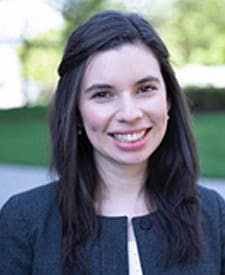
Christina Eastman
2021 Publius Fellow
What is your current position?
I am a consultant at American Philanthropic, a national strategic consulting firm dedicated to strengthening civil society. I am also a violinist in the Boulder Symphony in Colorado.
What inspired you to choose this career path?
I chose a career track that enables me to work with numerous nonprofits with missions I care deeply about. The clients I work with at American Philanthropic are mostly in the conservative, liberty, and Christian/Catholic spaces, and many are local associations strengthening civil society.
What are you currently working on?
In light of the Biden administration’s recent vaccine mandates for government contractors, including in the defense sector, I am working on an op-ed detailing the potential national security threat posed by the mandates. If contractors choose not to get vaccinated, the sudden drop-off in the defense sector workforce will result in the loss of institutional knowledge crucial to our national security.
Christina was recently published in American Greatness.
How did you hear about the Claremont Institute?
I have known about the Claremont Institute for most of my life, but I really began engaging with their content and ideas in 2018. When I moved to New York City for my first job out of college, I was introduced to the chairman of the board, Tom Klingenstein. Tom generously invited me to salons he hosted with Claremont scholars as well as weekly dinners with his lovely wife, Nancy, to help me get acclimated to New York. It was in this environment that I had regular conversations about multiculturalism, the American Founding, Trump, Lincoln, and much more. (Tom has an impressive statue of Lincoln that towers over anyone standing in his office.) I cherish these conversations and credit them in a big way for leading me to apply for the Publius Fellowship.
What is your fondest memory of the Claremont Institute?
The Publius Fellowship was transformational for me in my intellectual journey in large part because of the wonderful cohort of 14 fellows. I was able to learn so much from each of them, and our conversations late into the night were equally as intellectually riveting as they were in the seminar room.
There are all sorts of educational programs out there for current and rising conservative professionals. What do you think makes the Claremont Institute’s Fellowships unique?
Many fellowships are great for policy-level discussions and leadership development. Claremont selects fellows capable of engaging with primary sources, discussing regime-level problems, and analyzing qualities of statesmanship. Claremont recognizes that two, three, or four decades from now, our country will turn to scholars to rebuild the regime that today is in utter distress. It is my firm belief that many of those scholars will emerge from the Claremont Institute network because of the investments they make in their fellowship programs.
What qualities do you believe will make outstanding statesmen/women in this century?
Besides embodying virtues such as prudence and integrity, I think it is important for our generation’s emerging statesmen to read the autobiographies and biographies of great statesmen who came before them.
What do you believe is the greatest challenge facing the United States?
Election fraud. Unless we restore the integrity of our elections, we will be unsuccessful in addressing attacks on our American way of life.
What book, speech, or movie has left a lasting impression with you and why?
Everyone should read Justice Thomas’ autobiography, My Grandfather’s Son. There are so many lessons to learn from him about integrity, hard work, faith, and duty.
What books are you currently reading?
I am currently reading the autobiography of Calvin Coolidge. Next on my list is Music in Ancient Greece by Spencer Klavan, who spoke to us at the Publius Fellowship.
Do you have a favorite quote? Why does it resonate with you?
Justice Thomas asks young people, “do you want to be a consumer of liberty or a defender of liberty?” These words are a reminder of the sacrifices made by many before us to protect our liberties, and it is our duty to do the same.
And just because …
Please share your thoughts on how and why music (especially the violin) became such an intricate part of your life.
I have been playing the violin since I was 6 years old. Studying music has shaped my work ethic and appreciation for art. I studied violin performance in college and have been grateful to hold positions in various orchestras, such as the Boulder Symphony in Colorado. Recently, I have been pondering how music has a role in shaping a moral citizenry and want to explore this idea further.

